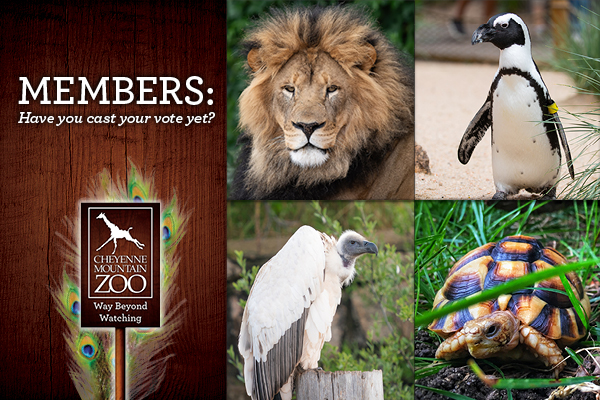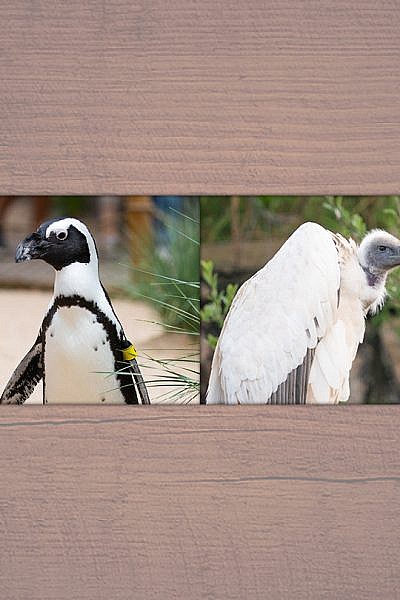2024 Member Conservation Vote top-ranked projects that were fully funded:
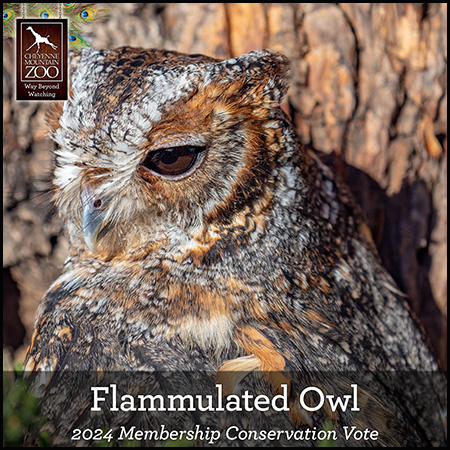
1. Track and protect FLAMMULATED OWLS in Colorado – $4,150
Purchase ten tracking tags that provide researchers with crucial migration data for these tiny owls. Migratory birds are currently facing many threats such as pollution, pesticides, habitat loss and collisions with human-made structures. The installation of two Motus towers at CMZoo and Fountain Creek Nature Center last year allowed researchers the ability to track hundreds of local bird species in efforts to protect them. As a continuation of that project, local researchers will utilize these towers to track the owls’ migration patterns and use that information to help protect the species.
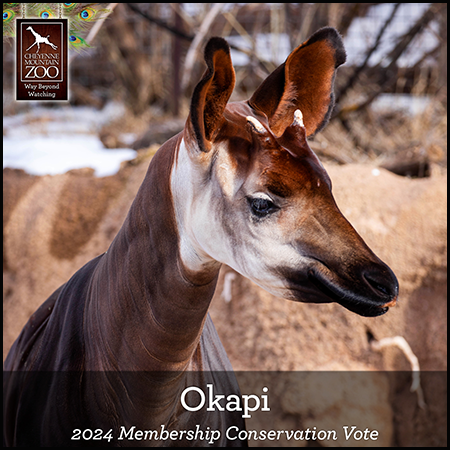
2. Support agroforestry to protect OKAPI habitat – $24,600
Provide farmers in the Democratic Republic of the Congo with sustainable agricultural resources. Okapi populations are facing a major threat of habit loss due to slash-and-burn agriculture and human settlement. The Okapi Conservation Project (OCP) provided farmers with tools, seeds, land plots and the education necessary to build and maintain sustainable agriculture and reforestation practices. In doing so, the local communities are empowered to produce their food sustainably and reduce their dependence on mining and poaching – leading to the long-term protection of okapi.
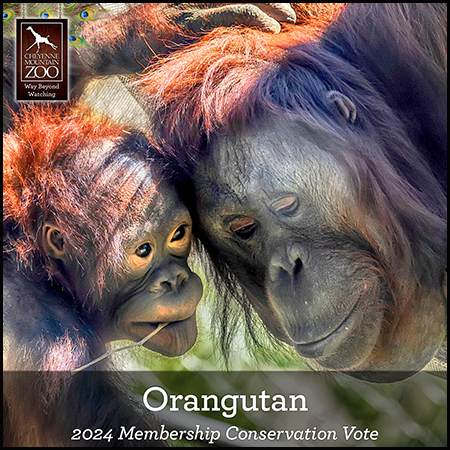
3. Help build a new island home for ORANGUTANS in Borneo – $17,642
Help provide the materials to construct a new, forested island home for non-releasable orangutans in Southeast Asia. Borneo Orangutan Survival (BOS) Foundation is an established organization that rescues, rehabilitates and releases orangutans back into their natural habitat. Unfortunately, a small percent of orangutans come to BOS with injuries, illnesses or other conditions that prevent them from being released into the wild safely. BOS houses and cares for them for the rest of their lives. These funds provided the construction materials for a new orangutan island that will create a spacious and enriching forever home for three non-releasable orangutans currently residing with BOS.
In Addition
With the remaining funds, CMZoo decided to partially fund:
-
Protect PANCAKE TORTOISES through community conservation in Kenya
Conduct community awareness training and research to protect critically endangered tortoises and their habitat. Wild turtle and tortoise species are in the midst of a worldwide extinction crisis. The African pancake tortoise faces severe threats, not only from grassland habitat destruction used for farming, but also an additional threat of poaching for the pet trade. The Turtle Survival Alliance developed research strategies for a newly found pancake tortoise population, as well as established additional awareness for the local communities surrounding this tortoise population.
-
Expand AFRICAN PENGUIN chick rearing capacity
Provide construction materials and equipment to rear penguin chicks. African penguins, found mainly in South Africa and Namibia, are facing threats from overfishing and climate change, which often results in penguin parents abandoning their chicks. Due to an exponential increase in egg and chick abandonment, the Southern African Foundation for the Conservation of Coastal Birds (SANCCOB) expanded their chick-rearing facility through our ongoing partnership. This expansion helped increase their capacity of penguin chicks and eggs that they can rescue, rehabilitate, and release each year.
-
Support kids’ education camps to help protect AFRICAN LIONS
Help protect large carnivores by empowering a new generation in Kenya. Human-wildlife conflicts can occur between farmers and predators, such as lions, that may threaten local livestock. Ewaso Lions’ education programs help to shift the attitude towards predators and allow Kenyan communities to more easily and efficiently coexist with wild carnivores by reducing the frequency of potential human-wildlife conflicts.
